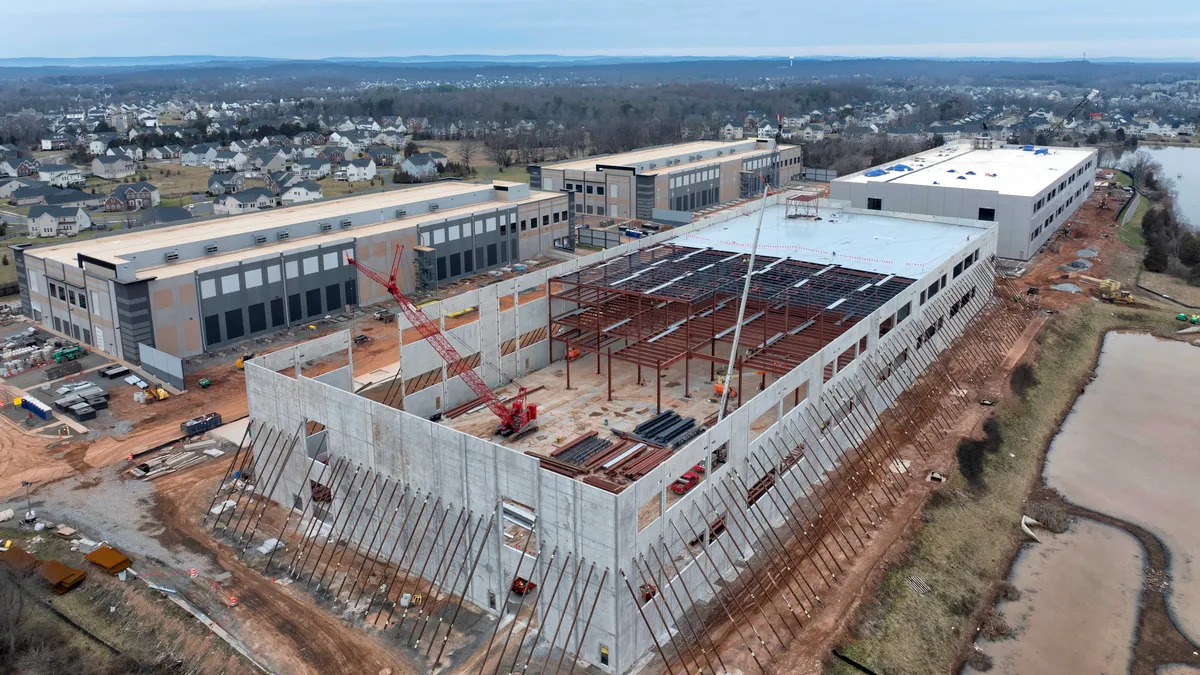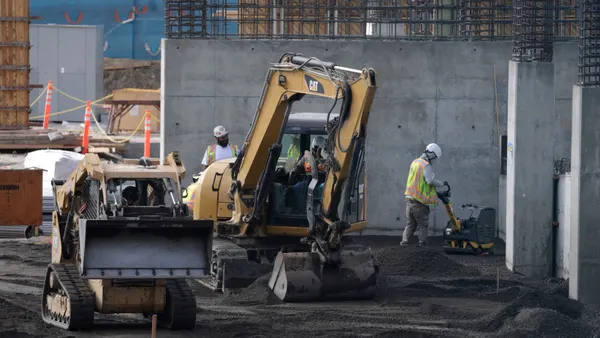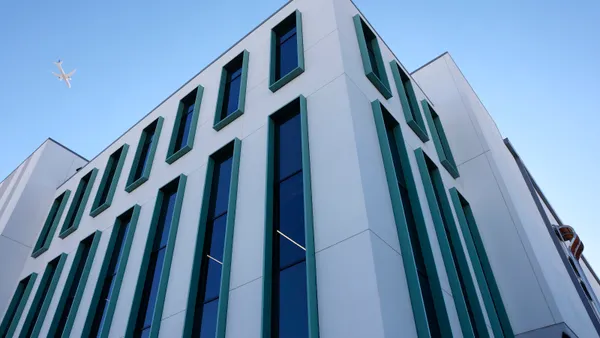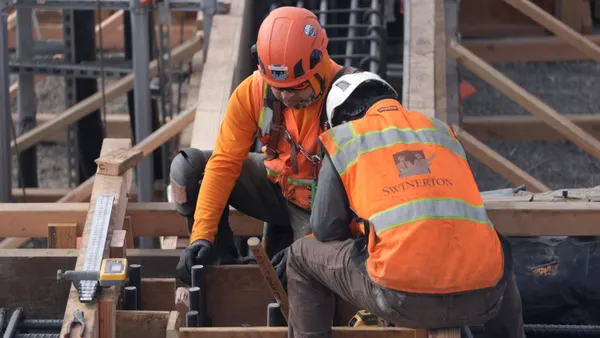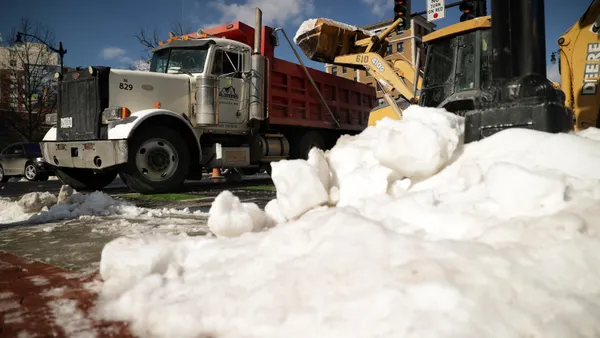Dive Brief:
- U.S. mechanics lien filings have risen significantly since the COVID-19 pandemic shut down all but the most essential projects in many states, according to notice and lien service provider Levelset. The number of liens filed through March 2020 jumped 40% since January.
- The survey of 540 construction professionals, carried out in conjunction with field productivity solutions provider Fieldwire, found that payment delays are par for the course in the industry but that the majority of contractors (56%) are hesitant to take the steps necessary — i.e. file a lien or send required statutory notices to their customers — for fear of ruining their relationship with the owner, or, in the case of subcontractors, their relationship with the general contractor.
- Levelset CEO Scott Wolfe told Construction Dive that just as in the Great Recession, which took hold approximately 12 years ago, more contractors are taking advantage of the legal tools available to them in order to secure payment in an uncertain time. It is likely, he said, that once contractors avail themselves of their legal rights in pursuit of payment, they will continue to do so long after the pandemic has passed.
Dive Insight:
The survey also showed that many contractors have become conditioned to accepting slow payments and their negative impact on productivity as the industry norm.
More than 75% of those who responded to the survey said that they were generally happy with how fast they were able to finish their contracted work on a project, and 53% said they were happy with how quickly their customers paid them.
However, when digging deeper into what contractors and other construction industry firms had to say about payment and productivity, they revealed just how much time and money they waste in trying to collect money and how it negatively impacts the execution of their work. Some data points include:
- Less than 30% of those surveyed said they finish their projects on time and on budget.
- 80% revealed that they spend a significant amount of time during the workweek pursuing payment.
- Only approximately 50% said they received payment within 30 days of submitting an invoice.
- 4% reported that it usually takes their customers 60 days or more to pay invoices.
- Only 52% of respondents said they are usually paid in full for their work
- 54% can't pay their own bills on time because of late payments from their customers.
As the survey responses indicate, construction professionals, Wolfe said, typically don’t want to run the risk of upsetting the customer and losing out on future work by pushing for payment. However, he said, that has changed since the COVID-19 pandemic has stopped work in many states, leaving some to wonder if those in-progress jobs are shut down for good.
This “material impact” to the flow of cash and to the schedule has made contractors think twice about basing their business relationships on a handshake and has convinced many to take advantage of those provisions of the law that protect their financial investments into a project.
One of the most important tools a contractor can use to secure payment, Wolfe said, is the state's notice provisions. If a project's finances go south, notifying the owner that one has provided either materials or labor — according to the sometimes very detailed steps that state laws require — gives the contractor leverage by letting the owner know that the contractor has mechanics lien rights if its invoices are left unpaid.
Before resorting to legal remedies, however, contractors should exhaust friendlier means. Even if it's uncomfortable, being aggressive in collecting money, including billed change orders, every month could yield results without having to take it to court.
It's always wise to check on the owner's financial health, especially since the pandemic could have scared potential lenders away or taken a chunk out of the owner's liquid assets. Depending on which contract form the parties use, there could be a few ways to find out that information.
The American Institute of Architects' A201-2017 General Conditions of the Contract for Construction, for instance, allows contractors to ask for proof the owner can pay for the project before starting work and if payments are late during the execution of the work. If the owner refuses to provide the requested information, the contractor can refuse to start work, or stop it if its already in progress, and collect delay-related damages.



